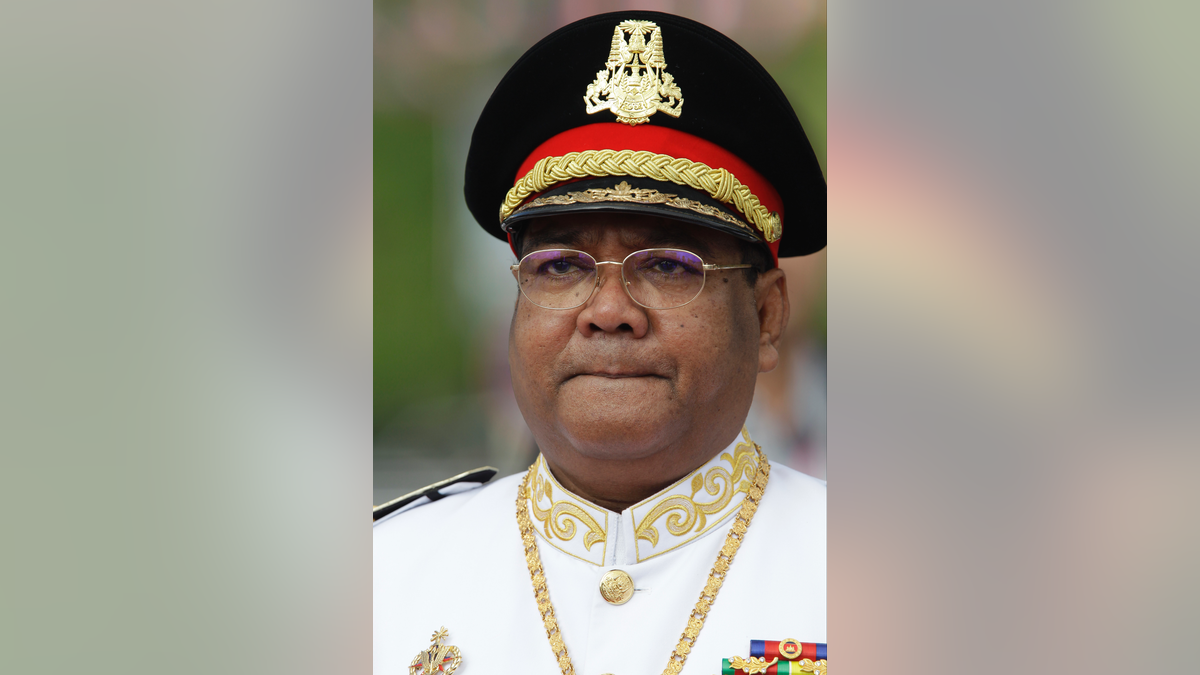
PHNOM PENH, Cambodia – Cambodian authorities reacted with scorn Wednesday to an announcement by the United States that it has blacklisted an important senior army officer over human rights abuses, blocking his access to any assets in the U.S.
The Treasury Department announced sanctions Tuesday against Gen. Hing Bun Hieng, commander of Cambodia's Prime Minister Bodyguard Unit, which it said had been engaged in serious human rights violations for at least the past 21 years.
A Cambodian Defense Ministry statement issued Wednesday regretted and condemned the U.S. action, which it described as unjust and not backed by any evidence. It said it was a "stupid decision that Cambodia cannot accept."
The U.S. move came just a little over a month before a general election in which the main and only credible opposition party will not take part because it was dissolved last year by Cambodian courts in what critics contend was a politically motivated move to ensure the continued rule of Prime Minister Hun Sen. Other moves to curb the opposition have included silencing most independent media.
Bun Hieng, a four-star general, also holds the position of deputy commander of the armed forces. The bodyguard unit is an elite force with thousands of troops which is seen as being deeply involved in internal security matters and especially loyal to Hun Sen, who has held power for three decades.
The Treasury Department announcement said the unit "has been implicated in multiple attacks on unarmed Cambodians over the span of many years" and is "connected to incidents where military force was used to menace gatherings of protesters and the political opposition going back at least to 1997, including an incident where a U.S. citizen received shrapnel wounds."
The 1997 incident involved grenades being thrown at a small political protest the opposition leader was attending in the middle of the capital city, Phnom Penh. Seventeen people were killed and about 150 wounded.
The Treasury Department action also bars U.S. citizens generally from doing any transactions with Bun Hieng.
Bun Hieng told The Associated Press that he had not committed any human rights abuses and held no property in the United States.
"As an army commander, I have never committed anything that was contrary to the Cambodian Constitution and laws, therefore, I am not worried at all by the U.S. sanction," he said by telephone. "The sanctions are laughable because I don't have any property in the U.S. or deposited with any company there."
Additional statements decrying the U.S. action were issued by the Foreign Ministry and the offices of the Cabinet — which said it violated Cambodia's sovereignty — and the Royal Cambodian Armed Forces. The Foreign Ministry statement said it could be construed as part of a series of coordinated attacks on the government's image ahead of next month's polls.
Washington's move was applauded by others.
"Hin Bun Hieng's position as commander of PM Hun Sen's bodyguards makes him one of the most feared men in Cambodia, and with good reason. It's about time the U.S. finally recognized that it falls to a major global power to call out such a powerful figure on human rights grounds, and hold him accountable for the atrocities he's committed," said Phil Robertson, Asia deputy director for the New York-based Human Rights Watch.
The Cambodian National Rescue Party, the opposition grouping that was dissolved last year, said it welcomed the U.S. action, calling it justified because Bun Hieng was, it charged, one of the country's biggest human rights abusers.
It said Washington's move should serve as a warning to Cambodia's government that it must cease its abuses or face punishment from the international community.

